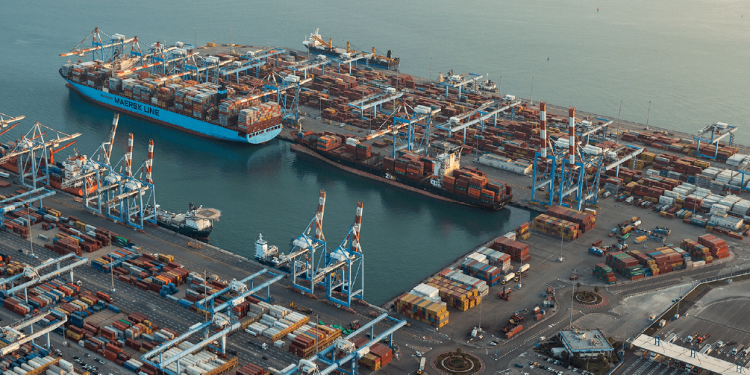The ongoing maritime security crisis in the Red Sea is causing ripples of tension around a Chinese-operated container terminal in Haifa, Israel. The situation escalated when China’s state-owned ocean carriers abruptly halted services to Israel, prompting the chairman of the port of Ashdod to accuse China of implementing a de facto “trade boycott.” In response, there were threats to cease information-sharing with a Chinese-operated terminal in Haifa.
The root of the issue lies in the suspension of all shipments to and from Israeli ports by Chinese-owned carrier OOCL, citing “operational issues.” Subsequently, China COSCO, the world’s largest state-owned shipowner, followed suit, canceling all services to Israel. Despite these significant developments, neither company has provided detailed explanations, leaving the Israeli transport ministry seeking clarity.
The maritime disruption stems from Houthi rebel attacks on merchant vessels in the Red Sea, forcing most large container ships to divert their routes, circumnavigating Africa. This diversion is particularly impactful on ports in the Eastern Mediterranean and Red Sea, leading to increased sailing distances and associated costs. One service string to the Red Sea, part of THE Alliance, has even been suspended altogether.
Shaul Schneider, chairman of the board of Ashdod Port, raised suspicions about the motivations behind COSCO’s decision, suggesting it could be more than just operational concerns. This led to the threat of withholding information-sharing with SIPG, the operator of a significant container terminal at the Port of Haifa. However, Israel’s national ports and shipping regulator disputed Schneider’s characterization, deeming it “inaccurate” and potentially detrimental to various aspects, including seaborne trade, foreign relations, and even the ongoing conflict in Gaza.
The logistics landscape further complicates with SIPG, a Chinese company, having inaugurated a state-of-the-art $1.5 billion terminal at Haifa in 2021. The location, however, raised security concerns from U.S. officials due to its proximity to an Israeli Navy base. In a strategic move in 2022, Israel opted for an Indian bid to privatize the Haifa Port Company, a decision widely interpreted as an attempt to counterbalance Chinese interests in the region. The confluence of security considerations, geopolitical dynamics, and the evolving logistics scenario underscores the complexity surrounding these maritime and port operations in the Eastern Mediterranean.























